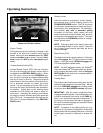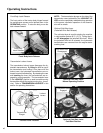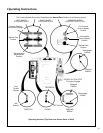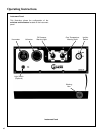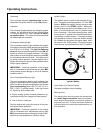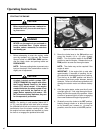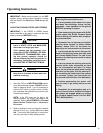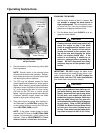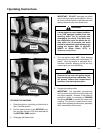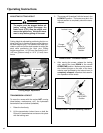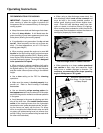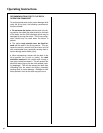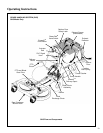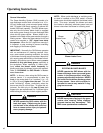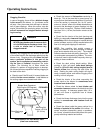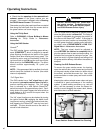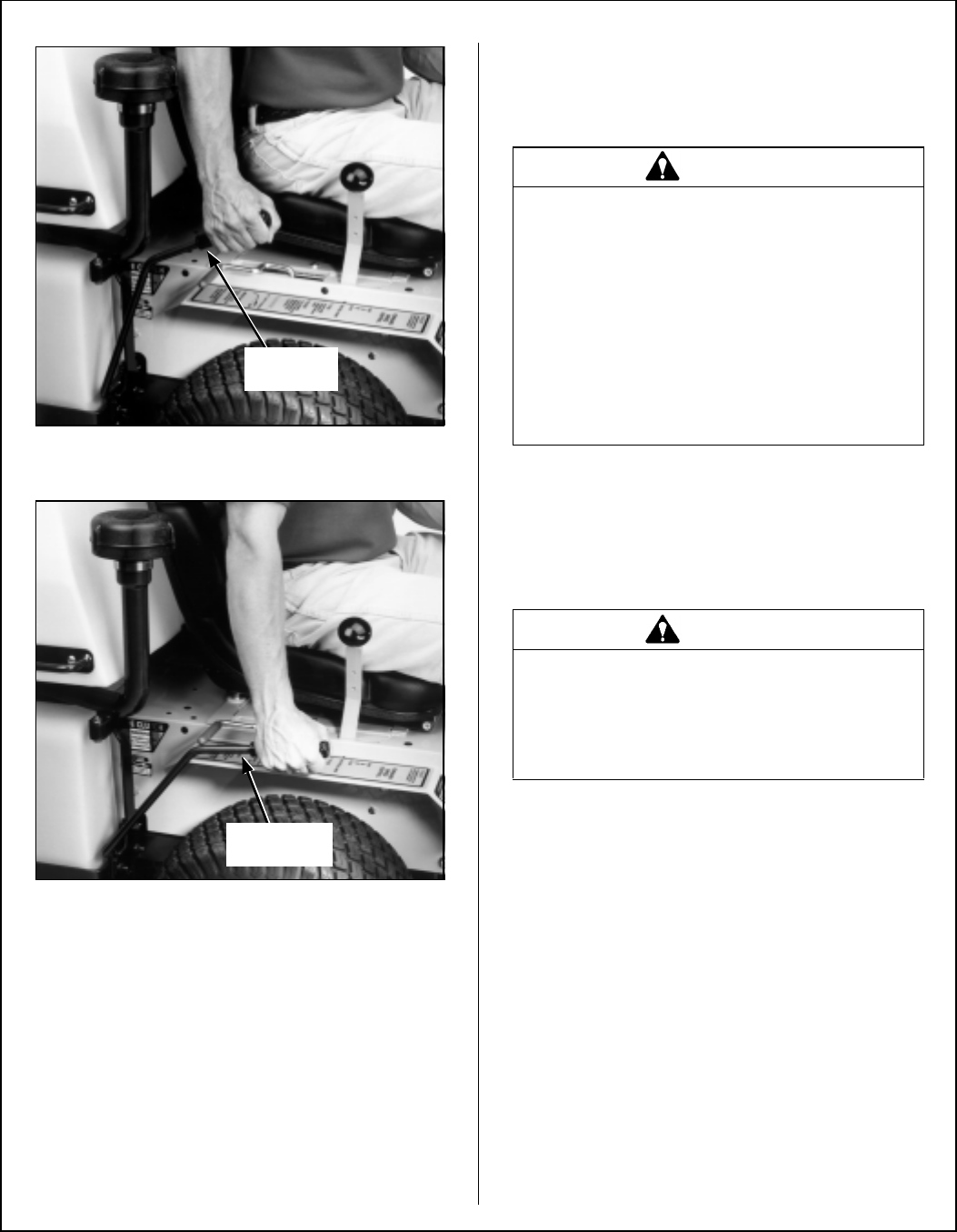
Operating Instructions
3
3
Blade Clutch Engaged
Blade Clutch Disengaged
STOPPING THE MACHINE
1. Slow the engine to a fast idle; put the throttle in
the 1/2 throttle position.
2. Pull the steering levers to the NEUTRAL posi-
tion and then move the FSC lever backward to
the NEUTRAL-PARK position.
3. Disengage the blade clutch.
IMPORTANT: DO NOT disengage the blade
clutch with high engine speed (above 1/2 throt-
tle) since the brake action on the blade drive will
cause premature wear of the brake band.
4. Turn the ignition switch OFF. When stopping
the engine, do not reduce the throttle below 1/2
speed. Since the engine is equipped with a
shutdown solenoid, stopping at low idle may
cause engine run-on or backfiring.
5. Engage the parking brake.
IMPORTANT: The hydrostatic transmissions
lock to prevent the mower from rolling freely with
the engine stopped. However, if the mower is
parked on a slope, it is necessary to ENGAGE
the parking BRAKE to prevent the mower from
creeping. This is due to a small amount of slip-
page in the hydrostatic transmissions, especially
when transmission fluid is warm.
Engaged
Position
Disengaged
Position
WARNING
A brake stops the cutter blades (and blow-
er on GHS equipped models) from free-
wheeling within five (5) seconds after
disengaging the clutch. If the brake sys-
tem malfunctions and the blades do not
stop within five (5) seconds, the brake
should be adjusted or repaired before op-
erating the mower. Refer to ADJUST-
MENTS of Blade Clutch (PTO) in
Maintenance Instructions.
WARNING
Remove the key from the ignition switch
when leaving the mower unattended. This
will prevent children and inexperienced
operators from starting the engine.



